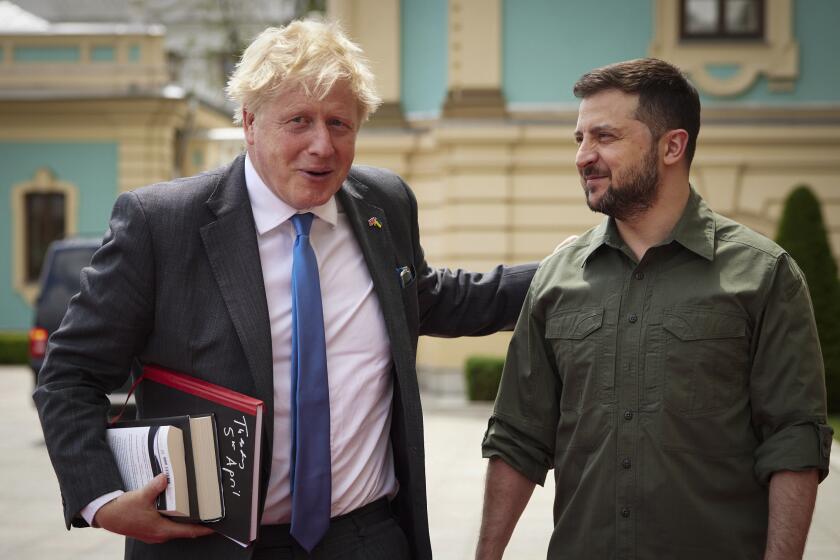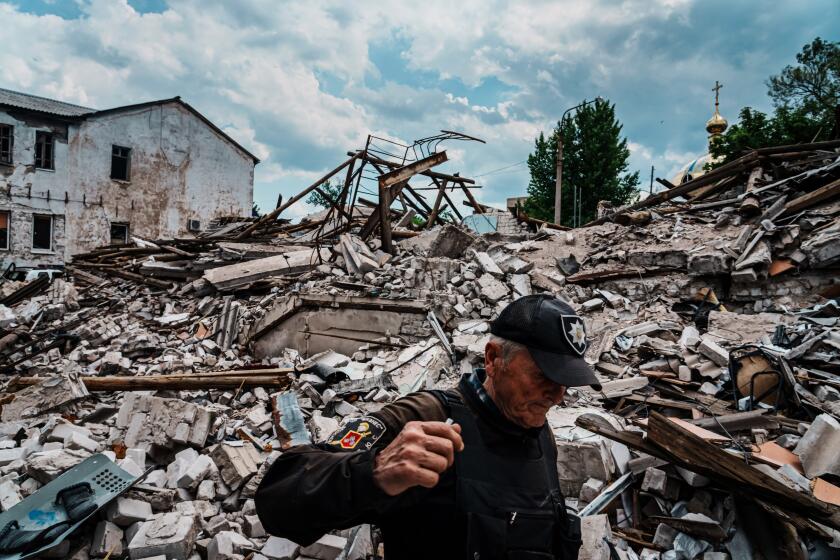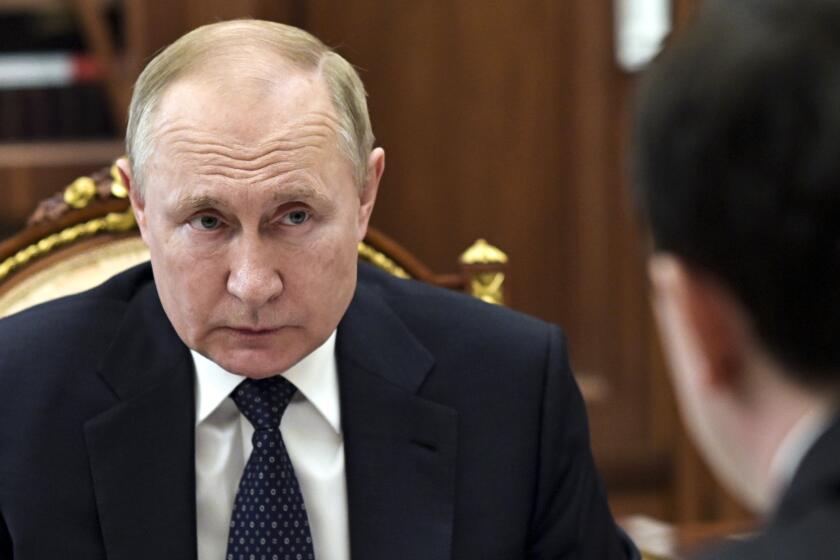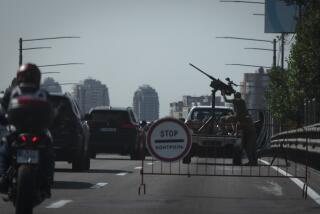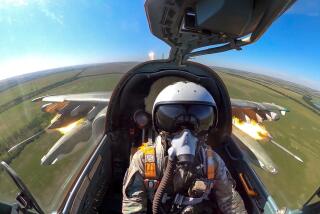‘It’s just hell there’: Russia still pounds eastern Ukraine
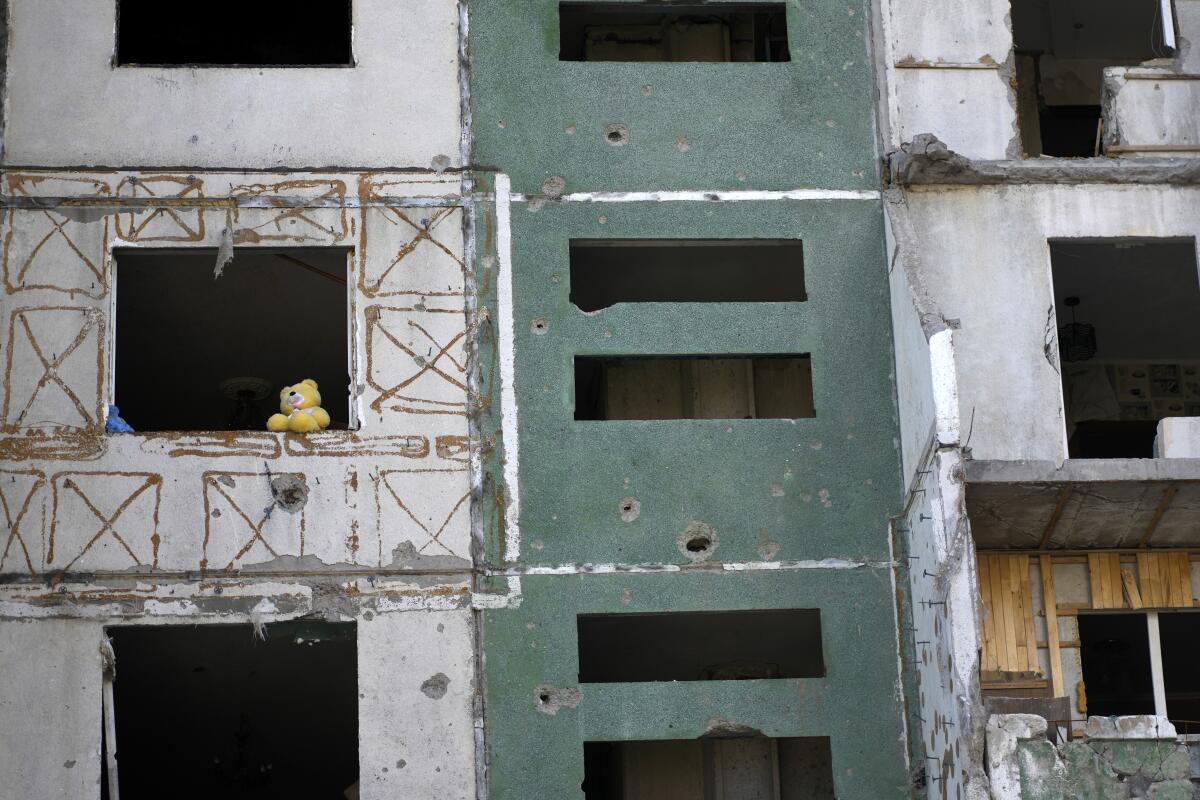
- Share via
KYIV, Ukraine — Russia’s military kept on grinding down Ukraine’s defenses Monday, with combat in eastern areas said to be entering a “decisive” phase, as the war’s consequences for food and fuel supplies increasingly weighed on minds around the globe.
In Ukraine’s eastern Luhansk region, which in recent weeks has become the focal point of Moscow’s attempt to impose its will on its neighbor, battles raged for the control of multiple villages, the local governor said.
Ukrainian Deputy Defense Minister Hanna Maliar said the Kremlin had ordered the Russian military to overrun the entire Luhansk region by next Sunday. Currently, Moscow’s forces control about 95% of the region.
Maliar said in televised remarks that “without exaggeration, decisive battles are taking place” in the area, where Ukrainian forces are desperately trying to avoid being encircled.
“We must understand that the enemy has an advantage both in terms of personnel and weapons, so the situation is extremely difficult. And at this very minute these decisive battles are ongoing at the maximum intensity,” Maliar added.
Ukrainian President Volodymyr Zelensky repeated his plea for more Western weapons to fend off the Russian onslaught.
“We need your support, we need weaponry, weapons that will have better capabilities than the Russian weapons,” he told a forum in Milan that was organized by the ISPI geopolitical think tank. He spoke by video link.
Zelensky added: “This is a matter of life or death.”
The executive arm of the European Union recommended Friday that Ukraine be granted candidate status to one day join the 27-nation bloc.
The villages where combat is fierce are around Severodonetsk and Lysychansk, two cities in the Luhansk region yet to be captured by the Russians, according to Luhansk’s governor, Serhiy Haidai.
Russian shelling and airstrikes on the industrial outskirts of Severodonetsk have intensified, he said.
Haidai told the Associated Press on Monday that the situation in Severodonetsk was “very difficult,” with the Ukrainian forces maintaining control over just one area — the Azot chemical plant, where a number of Ukrainian fighters, along with about 500 civilians, are taking shelter.
The Russians keep deploying additional troops and equipment in the area, he said.
“It’s just hell there. Everything is engulfed in fire, the shelling doesn’t stop even for an hour,” Haidai said in written comments.
Only a fraction of 100,000 people who used to live in Severodonetsk before the war remain in the city, with no electricity, communications, food or medicine.
Even so, Haidai said, the staunch Ukrainian resistance is preventing Moscow from deploying its resources to other parts of the country.
Ukraine is in a brutal artillery war, the kind not seen since World War I. Lacking better weapons, it is losing as many as 6,000 soldiers a month.
The British defense ministry noted that the war is not going all Russia’s way, despite its superior military assets.
Russian ground troops are “exhausted,” the defense ministry said in an intelligence report Monday. It blamed poor air support for Russia’s difficulty in making swifter progress on the ground.
Across the world, drivers are rethinking their habits and personal finances amid surging prices for gasoline and diesel, fueled by Russia’s war in Ukraine as well as the global rebound from the COVID-19 pandemic. Energy prices are a key driver of inflation that is rising worldwide and making the cost of living more expensive.
The European Union’s top diplomats gathered in Luxembourg on Monday for talks focused on Ukraine and food security.
EU foreign policy chief Josep Borrell called on Russia to lift its blockades of Ukrainian ports to help deliver the millions of tons of grain waiting to be exported.
Will inflation and energy woes crack Western unity over Ukraine? Putin likely hopes so.
“I hope — more than hope, I am sure — that the United Nations will at the end reach an agreement,” Borrell said. “It is unconceivable, one cannot imagine that millions of tons of wheat remain blocked in Ukraine while in the rest of the world, people are suffering [from] hunger. This is a real war crime. ... You cannot use the hunger of people as a weapon of war.”
Financial help for children displaced by the war in Ukraine was due to come from an unlikely quarter later Monday, when Russian journalist Dmitry Muratov looked to auction off his Nobel Peace Prize medal in New York.
Muratov was awarded the gold medal in October 2021. He helped found the independent Russian newspaper Novaya Gazeta and was the publication’s editor in chief when it shut down in March amid the Kremlin’s clampdown on journalists and public dissent in the wake of Russia’s invasion of Ukraine.
Muratov had already announced he was donating to charity the $500,000 cash award that came with the prize. The proceeds will go directly to UNICEF in its efforts to help children displaced by the war in Ukraine.
More to Read
Sign up for Essential California
The most important California stories and recommendations in your inbox every morning.
You may occasionally receive promotional content from the Los Angeles Times.
